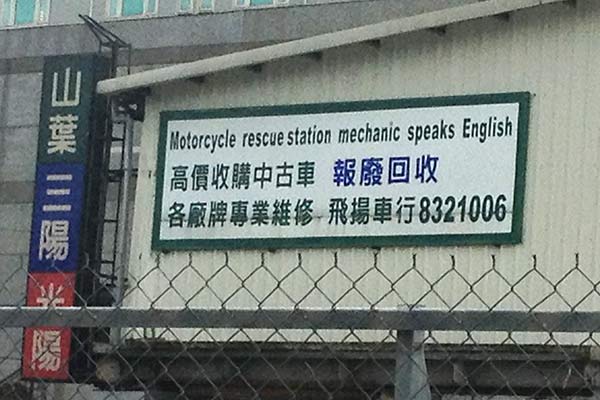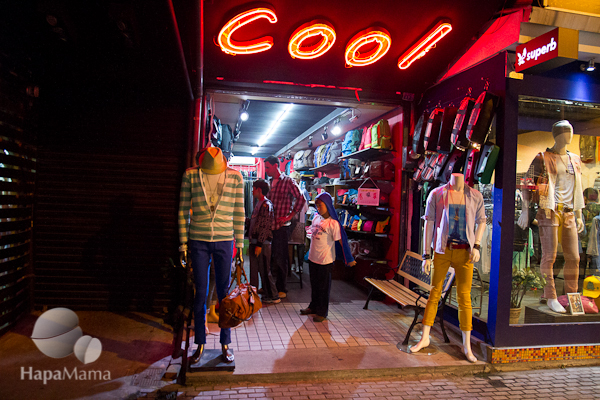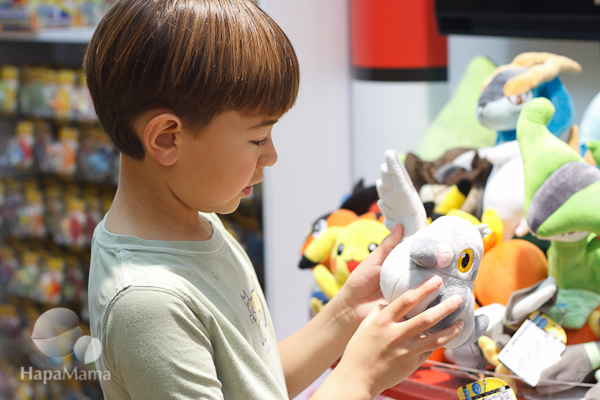Welcome to this week’s installment of Taiwan Tuesday! This week, I’m talking about what languages people speak on the beautiful island.
As I headed to Taiwan, I wondered what language would be most helpful in getting around the island. Of course, Mandarin Chinese is the official tongue, and what most people — especially Gen X or younger — speak. Mandarin has been the dialect taught in schools and used for official business since the late 1940s. But it hasn’t always been that way. My grandparents were educated under Japanese rule in the early 1900s, and to them, Japanese comes more fluently than Mandarin. And of course, for many Taiwanese, the mother tongue is the Dai wan wei, also known as the Hokkien or Hoklo dialect in Southern China and among the Chinese diaspora in Southeast Asia. That was my first language, spoken in our home by my immigrant parents. However, the Taiwanese language has never been the official dialect of the government and as a result, many people my age or younger don’t speak it.
During our first few days in Hualien on the eastern coast, Taiwanese was spoken often. It’s the language you use to talk to taxi drivers or to bargain with vendors at the night markets, and while they may or may not give you a better deal, the look in their eyes softens a little when they hear their native tones (however bad the accent). Our first night, we went to old-fashioned pajama vendor to buy some clothes. By the way, Taiwan has the best sleepwear. The floral patterns may be a bit frumpy, and the kids’ prints may have weird English phrases printed on them, but the cotton! It’s the softest, sheerest tropical material that you just can’t find in the States. I was trying to explain to the older woman selling clothes what I needed, and not only did she not laugh at my pidgin Taiwanese, she gently corrected me and taught me a few new words, too.
However, not everyone speaks Taiwanese. While HapaPapa and I were browsing around a night market vendor selling trendy men’s clothing, a twenty-something guy tried to help us. My broken Mandarin wasn’t doing a great job conveying what was wrong with the jeans he was trying on. I know that most Taiwanese students learn English in school, so I attempted to explain that the pants were the right size, but how shall we say, not the right fit? He didn’t want a bigger size, he wanted a less slim cut. From my last visit to Taiwan in 2001, I had a sneaking suspicion that many Taiwanese people can understand English pretty well, although they aren’t comfortable speaking it. But this particular conversation really was not going well, and after the clerk brought out numerous pairs of pants and then tried to sell us a belt, I had to just bid him zai jian.
Another horrifying example of English learning gone wrong was the prevalence of the F-bomb. One more than one occasion, I heard the f-ing this and f-ing that in pop music lyrics, and even saw it emblazoned across someone’s t-shirt. Please, English teachers of Taiwan, don’t let this trend spread.
But every once in a while people surprised me. At an amusement park near Hualien, a candy store clerk — a young woman, probably college-aged — overheard me asking Little Brother what flavor he wanted and asked in perfect English, “Where are you from?”
Back in Taipei, Mandarin is the prevalent language — on recorded subway announcements, in businesses and on television. The most nerve-wracking conversations I had were with younger sales clerks in the more department stores. One day, we wandered around this confusing globe-shaped shopping center called the Pacific Core Center in search of the Pokemon store, and ended up trapped among the flashing lights and blaring beeps and bells of a kiddie play area called Baby Boss. I tried to ask a young woman, “Pikachu-mon dian zai nali?” and she responded in painfully slow, smiling way usually reserved for the elderly, toddlers, or the mentally unstable, “Ni… yao… Baby… Boss… ma?
On another occasion, while I was inquiring about some boxes of biscuits at Taipei 101, the clerk snipped, “It’s okay to use English.”
I was so relieved when I visited my grandmothers, as I could lapse into the household Taiwanese that I comes most naturally to me. The biggest compliment came from my maternal grandmother, who exclaimed to my aunts in Taiwanese, “Grace nong tyah oo!”
The rest of my family mostly took a backseat in these conversations. The few conversations HapaPapa needed to have with hotel staff and taxi drivers, he managed to communicate in English, with lots of nodding and “xie xie“. The boys were largely quiet in public, although they spent several hours each night happily watching Sponge Bob and Adventure Time — completely in Mandarin. Many times, I felt like a linguistic failure. Being bilingual for myself, much less my children, would require more than a few classes or listening to some songs or stories. I questioned whether I have the commitment ,or even the internal motivation, to truly become fluent in a language besides English. And add to this the ambivalence over whether to pass down Taiwanese (which is more authentic to my heritage) or Mandarin (which is probably more useful in terms of Asia and the Chinese diaspora in general), and I have been stymied by the choices.
But everyone has to start somewhere, right? On our last day in Taipei, Little Brother sighed, “I think I’ll learn Mandarin.”
Me too.




What a fun trip you had! I learned Taiwanese on the playground with the neighborhood children and I have a funny accent. My Taiwanese did not work so well when I went down south. I was having a hard time to understand people when I was in Kaohsiung many years ago. Then my friends who are fluent in Taiwanese told me that people use different words and expressions in different region. When you speak Taiwanese at the night market it does connect you with the vendors. My kids were interested in hearing me speaking some Taiwanese last time when we were visiting Taiwan. They picked up a few Taiwanese phrases and I even heard my daughter said duo shia to a snack vendor. The vendor was so happy to hear that and she gave her an extra piece. The power of language!
The playground… Best way to learn languages! And I also noticed that the Taiwanese spoken by people from the south has some different pronounciations. I noticed in college that some of my Taiwanese friends said words very differently than I learned them.
thank you for sharing about your experiences! i too speak taiwanese and grew up with it, speaking with my parents, grandparents and aunts/uncles. i went to chinese school to learn mandarin, but my vocabulary is so small, i have a hard time carrying on a conversation. my siblings and i joke that we speak chitanglish, and we just pull from whichever language we know the words for.
i speak mostly taiwanese with my child who’s 19 months old, but it’s mixed with mandarin. when i asked my mom to find some taiwanese language books for kids, she even encouraged me to teach him more mandarin since (sadly) taiwanese seems to be a dying language. i am determined to pass on a little of both – whatever i can offer!
Great to hear from another Taiwanese speaker. There aren’t many resources for teaching Taiwanese to kids. My son’s Chinese teacher gave me a few workbooks long ago that came from Taiwan, but since it’s not even taught in schools there, that would explain why there aren’t many books. But anything of either language can only be a plus.
That’s so great you and the family are visiting Taiwan. So interesting, I didn’t know they were known for their super soft PJs! The language (variety) is very interesting too. Thanks for sharing!
Oh, and I forgot there is also the minority Hakka language, plus the indigenous people also have their own languages. But like when Mandarin became the official language of all of China, many of the local dialects are being lost as the older generation passes on.
I didn’t even bother trying to teach Taiwanese to my kids. I think Mandarin will be much more useful to them. Even their second cousins growing up in Taiwan don’t speak Taiwanese, so I agree–it’s a dying language. Too bad, since it’s the only language I know other than English!